CMS Expects FY 2021 IPF Payments to Increase by 2.4%
The Centers for Medicare & Medicaid Services (CMS) on April 10 said it expects payments to inpatient psychiatric facilities to increase by 2.4% in fiscal year 2021, boosting the federal per diem base rate to $817.59 from $798.55.
An announcement about CMS’ proposed inpatient psychiatric facility prospective payment system (IPF-PPS) rule said the agency estimates total IPF payments to increase by $100 million next year. The rule was published in the Federal Register on Tuesday, April 14.
According to the proposed rule, CMS will adopt the Office of Management and Budget guidelines regarding geographic delineation of statistical areas, which CMS said should result in wage index values better representing the actual labor costs in a given area.
“CMS is proposing that all IPF providers negatively impacted in their wage index, regardless of the circumstance causing the decline, be capped at a 5-percent decrease for FY 2021,” the announcement said. Table 6 at the start of page 57 in the proposed rule shows changes in 2021 from 2020 for different facility types.
The agency said it is not making changes to the IPF Quality Reporting Program.
NABH is analyzing the proposed rule and will submit comments by the June 9 deadline.
HHS Opens CARES Act Emergency Fund Attestation Portal
HHS has opened its Coronavirus Aid, Relief, and Economic Security (CARES) Act emergency fund attestation portal for healthcare providers who receive funds from the $100 billion Public Health and Social Services Emergency Fund within 30 days of receipt to attest that they received the funds and agree to payment terms and conditions.
HHS began distributing the first $30 billion from the fund on April 10 to reimburse providers for healthcare-related expenses and lost revenue related to Covid-19.
New Coalition Launches Initiative to Match PPE Donors with Hospitals
A coalition of organizations including the American Hospital Association (AHA), Kaiser Permanente, UPS, and Microsoft has launched the Protecting People Everywhere initiative to support a national exchange that matches personal protective equipment (PPE) donors with the hospitals in greatest need.
Powered by the HealthEquip™ app, the initiative is meant to ensure these critical supplies are distributed equitably. Click here to learn more.
NABH Sends Urgent OTP Requests to HHS and SAMHSA
NABH this week asked HHS and the Substance Abuse and Mental Health Services Administration (SAMHSA) to make changes in telehealth service delivery and payment rates for opioid treatment programs (OTPs) during Covid-19.
In a letter to HHS Secretary Alex Azar and SAMHSA Administrator Elinore McCance-Katz, M.D., Ph. D., NABH requested that the Trump administration support an NABH-proposed telehealth service-delivery model for new patients that addresses SAMHSA’s clinical concerns while also protecting patients and physicians.
The letter also asked the federal health officials to support OTP providers at a standardized rate during the pandemic period to mitigate the loss in revenue and increase in expenditures for OTPs during Covid-19.
Click here to read the letter, which is posted on NABH’s Covid-19 resources page.
AHA to Host Behavioral Health Webinar Featuring Sheppard Pratt Leaders Next Week
The AHA will host a webinar about behavioral health challenges during Covid-19 on Wednesday, April 22 featuring senior leaders from NABH member Sheppard Pratt Health System.
Harsh Trivedi, M.D., M.B.A., an NABH board member and an AHA trustee, along with Sheppard Pratt’s chief medical officer, chief nursing officer, and chief strategy officer, will discuss how the system re-engineered care processes and developed new care protocols for agitated patients during the pandemic. The team will also discuss the system’s efforts to support staff and build resistance during the national emergency.
The hourlong webinar will begin at 2 p.m. ET. Click here to register.
O’Neill Institute Covid-19 and Addiction Policy Webinar Includes Pinnacle Treatment Centers CEO
The O’Neil Institute for National and Global Health Law at Georgetown last week hosted a webinar on Covid-19 and addiction policy that featured Joe Pritchard, CEO of NABH member Pinnacle Treatment Centers and a member of NABH’s Addiction Treatment Committee.
Panelists discussed the current state of access to treatment and harm reduction services for people with substance use disorders. Topics included recently waived federal regulations related to medications and telehealth, as well as the availability of harm reduction and recovery support services.
Fact of the Week
Between 1999 and 2018, suicide rates were lowest among females aged 10-14. The rate for this age group increased to 2.0 in 2018 from 0.5 in 1999.
For questions or comments about this CEO Update, please contact Jessica Zigmond

